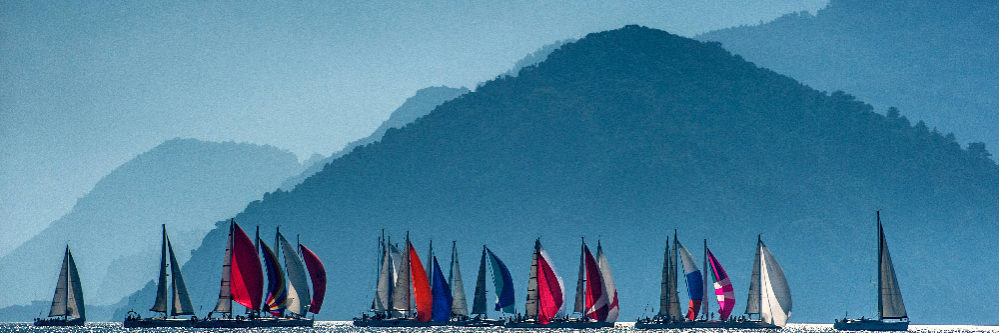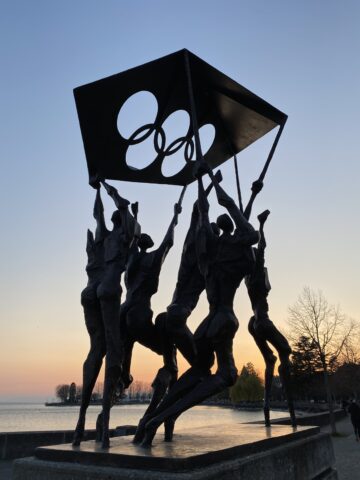International sports dispute resolution from CAS and the SFT in 2022
A summary of selected CAS & Swiss Federal Tribunal judgments rendered in 2022 & major regulatory reforms
2022 marked an exciting year for international sporting events – and ensuing disputes: it started before the Beijing 2022 Winter Olympics and Paralympics in February, which led to a number of qualification and selection cases before the CAS Ad Hoc Division, and particularly the decision to confirm the lifting of the provisional suspension of the 15-year-old prodigy figure skater Kamila Valieva. This case is set to continue in 2023, since WADA filed an appeal to the CAS as RUSADA failed to issue a decision within the time limit set by WADA.
The war in Ukraine also led to the exclusion of the Football Union of Russia from FIFA and UEFA competitions, leading to a dismissed request for provisional measures before the CAS in March 2022 and a final award in July 2022. In essence, the Panel found that the FIFA / UEFA decision to prevent Russian teams and clubs from participating in their competitions were within their power of discretion under the applicable regulations.
The year ended with the FIFA World Cup in Qatar, which did not register any disputes before the CAS Ad Hoc Division that was established for the tournament and had its own CAS Ad Hoc arbitration rules. There was, however, an dispute shortly before the World Cup regarding the eligibility of the Ecuadorian player Byron Castillo to participate in the qualifying matches of the tournament with the Ecuadorian Football Federation (FEF): while the CAS found that this was not an eligibility case under Article 22 FIFA Disciplinary Code (the Player was eligible to participate in the qualifying round under national laws that determine nationality), there was a violation of Article 21 by the FEF since it used falsified information in the Player’s passport (particularly the place of birth, which was in Colombia). The Panel therefore only sanctioned the federation with a 3-point deduction in the next preliminary competition to the FIFA World Cup and a fine.

Doping-related judgments
In February 2022 the SFT issued its final judgment on the motion to set aside the (second) CAS Award in the widely covered Sun Yang judgment. The Chinese swimmer, who destroyed his sample with a hammer during a doping control, was sanctioned with a 4-year and 3 month ineligibility period from the second CAS panel, following the annulment of the first CAS Award in the end of 2020. The second CAS Award was confirmed by the SFT, which dismissed all pleas raised by the athlete and repeated that the guarantees of the European Convention of Human Rights (ECHR) and the Swiss Constitution cannot be invoked directly unless it could establish a violation of the grounds of Art. 190 (2) PILA. Moreover, the SFT confirmed that there was not an obligation for a double degree of jurisdiction in CAS proceedings in view of the full power of review by the CAS panel.
In June 2022, the CAS Antidoping Division (deciding on a request filed by the ITA which acted on delegation from the International Weightlifting Federation (IWF)) issued in June its long-awaited decisions concerning the former IWF President, former IOC Member, former WADA council member) Tamás Aján and former IWF President (and former Vice-President of the IWF Anti-Doping Commission) Nicu Vlad (ROM). The decisions imposed a lifetime ban on both for anti-doping rule violations involving tampering and complicity (for Mr. Ajan), and for complicity (for Mr. Vlad).
The same month, the CAS issued its decision upholding three appeals filed by WADA against the decision of the International Canoe Federation (ICF) and sanctioned three Russian athletes for anti-doping rule violations. The annulled appealed decision, which had accepted an institutionalized doping scheme by the Russian authorities and an effort to cover up doping practices, found insufficient evidence against the particular athletes.
Noteworthy doping-related cases in 2022
Football ethics, disciplinary and qualification disputes
Several decisions related to football ethics were rendered by the CAS and the SFT in 2022: among others, the CAS upheld the appeal of the former African Football Confederation (CAF) President Issa Hayatou against the FIFA Ethics Committee by lifting the one-year ban and accompanying fine, for lack of sufficient proof of the alleged violation of the duty of loyalty towards CAF by entering into an anti-competitive agreement with a sports agency.
As for the SFT, it confirmed the lifetime sanction imposed within the framework of the so-called “FIFA-Gate” on Marco Polo Del Nero (former President of the Brazilian Football Confederation (CBF) and a former member of various FIFA and CONMEBOL committees). In his challenge before the SFT, the former CBF President sought to annul the CAS award confirming the FIFA Ethics Commission decision based on the repeated appointments of the FIFA-appointed arbitrator. In this important judgment, which found that the applicant had failed to request the challenge within the time limits set by the CAS Code, the SFT held that the failure of ongoing disclosures as such does not equal lack of independence unless a deliberate concealment can be established. It also referred to the specificities of CAS arbitrations and the numerous proceedings in which FIFA is a party, while confirming that arbitrators are bound by the ongoing duty of disclosure (also as per the new wording of Art. 179 (6) PILA).
The SFT also confirmed the CAS award in the matter of another former CBF President, namely Ricardo Texeira.The latter had sought to annul the CAS Award rendered in 2021 (which confirmed the life ban imposed by the FIFA Ethics Committee decision), alleging, among others, a violation of public policy for the excessive sanction. Interestingly, the SFT judgment found that this plea was in violation of the principle of good faith, to the extent that the sanction itself was not contested by him in the CAS proceedings (which, in fact, accepted that such sanction would be proportionate if the panel were to accept the violation of the FIFA Code of Ethics provisions). The SFT concluded that such plea was unfounded and reiterated the very narrow scope of substantive public policy violation (and the violation of Art. 27 (2) Swiss Civil Code).
In June, a CAS award found that a decision rendered by the Kenyan Football Federation (FKF) to withdraw its women’s national football team from the first qualifying round of the 2022 Africa Women Cup of Nations (AWCON)was rendered ultra vires and was therefore annulled. Unfortunately, since the appellant-athletes had not appealed against the CAF decision to directly qualify the team of Uganda for the next round of the competition, the CAS could not review such decision and had no power to reinstate the appellants to the tournament.
Election disputes
The CAS also heard the appeal of several European Federations against the election of Johan Eliasch as President of the International Ski Federation (FIS) in December 2022. Eliasch was re-elected unopposed for another four years while the Congress had allegedly agreed to include the option to vote against him; the appellant four federations sought thus the annulment of the decision for violation of Swiss law and the CAS decision will be rendered in 2023.
In weightlifting, the CAS upheld the appeals filed by the Russian Weightlifting Federation and several individuals who were declared ineligible for election by the IWF Eligibility Determination Panel (EDP), finding that the EDP lacked jurisdiction to issue a decision of a disciplinary nature as per the IWF Constitution.
Similarly, in boxing, the CAS upheld the appeals of several individuals against the decision of the Boxing Independent Integrity Unit Interim Nomination Unit (INU) to declare them ineligible for the IBA elections in May 2022, even though the IBA Disciplinary Committee had found them not guilty. The CAS found that the minor breach of regulations (for early campaigning) did not merit a severe sanction and annulled the ineligibility decision.
Other interesting CAS and SFT judgments

Review of the jurisdiction of FIFA tribunals by the Swiss Federal Tribunal
In a football-related contractual dispute between a coach and a national federation, the CAS accepted the jurisdiction of the FIFA PSC – and subsequently its own jurisdiction. In the subsequent motion to set aside the CAS award before the SFT, the applicant federation invoked again the lack of jurisdiction of the FIFA PSC. Interestingly, the SFT judgment found that such challenge does not fall within the “typical” jurisdictional challenge of a CAS award under Art. 190 (2) b PILA and it is only possible to challenge this under the public policy ground of Art. 190 (2) e PILA.
Limited scope of the pacta sunt servanda principle
In a contractual dispute between Sporting Portugal and a football player, the SFT judgment reiterated the extremely limited scope of pacta sunt servanda, stating that such a plea is not admissible if the applicant (in casu the club) only tries to establish that the challenged award is contrary to a norm of Swiss law – and repeated that it is beyond the scope of the motion to the SFT to review the appreciation of the arbitral tribunal.
SFT judgment in a defamation case following a match-fixing judgment
The criminal law court of the SFT rendered this interesting judgment in the follow-up of a match-fixing saga involving the FC Skënderbeu. Following the sanction on the club based on a report drafted by two UEFA Ethics & Disciplinary Inspectors (EDIs) and submitted to the UEFA Control, Ethics and Disciplinary Body (CEDB), based on a Sportradar analysis, the individuals incriminated in the report filed criminal complaints in Switzerland. While the EDI’s were found guilty of defamation in first instance, their sanction was reversed on appeal and such decision was subsequently confirmed by the SFT. In essence, while the SFT held that the EDIs are third parties with respect to the CEDB, the Sportradar analysis was a valid source of information on which the UEFA officers could rely in good faith to purport the accusation.
Transfer of Emiliano Sala
In 2022, the CAS also issued its full decision in the dispute between FC Nantes and Cardiff City FC over the transfer of the late Emiliano Sala, who was killed in a plane crash back in February 2019. In essence, the CAS Panel confirmed the FIFA PSC decision and found that Sala’s transfer from FC Nantes to Cardiff City FC had been completed and therefore FC Nantes’ claim for the first installment of the transfer fee of EUR 6 million was confirmed. However, the rest of the transfer fee (of EUR 17 million) was not due at the time of the procedure and that there could be another procedure (i.e., outside the CAS) for liability of the FC Nantes for the player’s death (in which case the remaining transfer installments should be set off against such tort liability).
In November 2022 the CAS (which inaugurated its new Headquarters at the Palais de Beaulieu in June) amended its CAS Code, by increasing the ICAS members to 22 (in order to ensure a better representation of football stakeholders). Importantly, the ICAS Legal Aid Commission will now manage two legal aid funds, including the newly established Football Legal Aid Fund (FLAF) exclusively for football disputes and financed by the football stakeholders.
Furthermore, the CAS issued its annual Report 2022 in October, including valuable information and statistics on the cases dealt with by the various CAS divisions and the ICAS Financial Statements for 2021. The FLAF Guidelines will be issued in 2023.
In October 2022 the FIFA Clearing House, a centralized entity in charge of processing training and solidarity compensation, became operational following the approval of its FIFA Clearing House Regulations by the FIFA Council. During the FIFA Council in Qatar, FIFA also approved its new FIFA Agents Regulations and amended its FIFA Code of Ethics and Disciplinary Code.
What to expect in 2023
Even though 2023 is not an Olympic year, the 2022 Asian Games were postponed due to the COVID-19 pandemic and will take place in Hangzhou in September-October 2023, featuring 61 disciplines and, for the first time, eSports.
Apart from the Valieva case before the CAS, at the EU level we expect the decision of the Court of Justice of the European Union (CJEU) in the Super League case to be rendered. The Advocate General (AG) has issued his (favorable to UEFA) opinion in December 2022, supporting in essence that the FIFA / UEFA rules according to which new competitions are subject to prior approval are compatible with EU competition law. The CJEU is also expected to render its decision in the ISU case following the AG opinion issued in December, stressing the specific nature of sport and the advantages of CAS arbitration.
Note: this article was first published in LawInSport.





